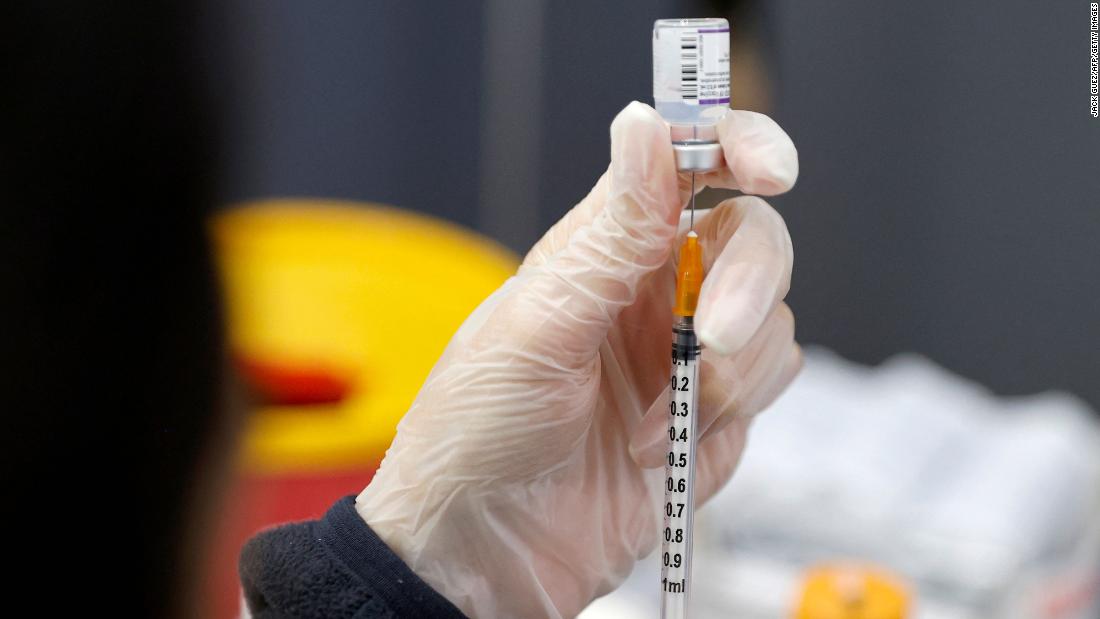Misinformation affects vaccination campaigns against covid-19 in Bolivia 3:41
(CNN) --
To help fend off another wave of Covid-19, people will need a fourth dose of the vaccine, Pfizer CEO Albert Bourla told CBS on Sunday.
"A lot of variants are coming in, and omicron was the first that was able to cleverly evade the immune protection that we're providing," Bourla told CBS's "Face the Nation."
"The protection that we get from the third (dose) is good enough, actually pretty good for hospitalizations and deaths," Bourla said.
But the protection after three doses "isn't as good against infections" and "doesn't last long" against a variant like omicron.
"It's necessary, a fourth (dose) for now," Bourla told CBS.
How was the patent-free vaccine against covid financed?
3:49
Currently, anyone age 12 and older who received a second dose of the Pfizer vaccine at least five months ago can receive a third dose.
advertising
Anyone over the age of 18 who has received two doses of the Moderna vaccine should get a booster shot six months after the second dose, according to the US Centers for Disease Control and Prevention (CDC).
US booster vaccination rate is lowest in its history, CNN analysis shows
And anyone who has received the single-dose Johnson & Johnson vaccine should get a booster shot after two months, the CDC said.
Some people with moderate or severe immunosuppression who have received three doses of the Pfizer/BioNTech or Moderna vaccines may now receive a fourth dose of the vaccine, according to the CDC.
But it is unclear if or when the US Food and Drug Administration (FDA) could license a fourth dose of the COVID-19 vaccine for healthy adolescents and adults.
"We're just sending that data to the FDA, and then we'll see what the experts outside of Pfizer would say," Bourla told CBS.
Children under 5 years old could soon be vaccinated against covid-19
Children ages 5 to 11 are currently eligible for two pediatric doses of Pfizer's COVID-19 vaccine, but are not yet eligible for a booster.
Pfizer is testing a third dose in that age group now.
And children under 5 are not yet eligible for a Covid-19 vaccine, though that could change this spring, Bourla said.
Pfizer advances with vaccine for 6-month-old babies 0:40
Initial data from the trial in children aged 2 to 5 years showed that two doses of a smaller, child-sized vaccine did not give the expected immunity in children aged 2 to 5 years, although it did in infants aged 6 months to 2 years. .
So Pfizer decided to add a third dose for children under 5 years of age in its ongoing trial.
Pfizer should have data on its three-dose vaccine trial for children 6 months to 5 years old by April, Bourla told CBS on Sunday.
If approved by the FDA and recommended by the CDC, COVID-19 vaccines for children ages 6 months to 5 years could start as early as May, Bourla said.
An opportunity for a longer lasting vaccine against all variants
Pfizer and Moderna have said they are working on a vaccine that would specifically protect against the omicron variant.
It is not yet clear if one is needed.
Bourla said that Pfizer also hopes to make a vaccine that will protect against omicron and all other variants of SARS-CoV-2, the virus that causes Covid-19.
The goal is to create "something that can protect for at least a year," Bourla told CBS on Sunday.
"And if we're able to pull that off, then I think it's very easy to follow and remember so we can really go back to the way we used to live," he said.
CNN's Jacqueline Howard contributed to this report.
Covid-19

